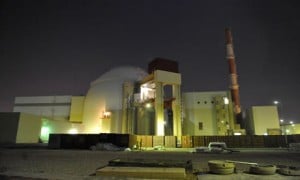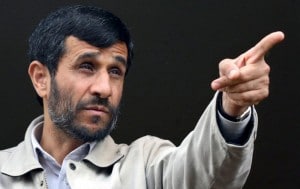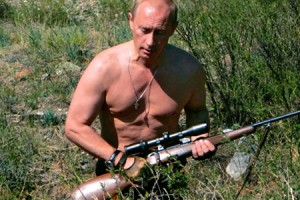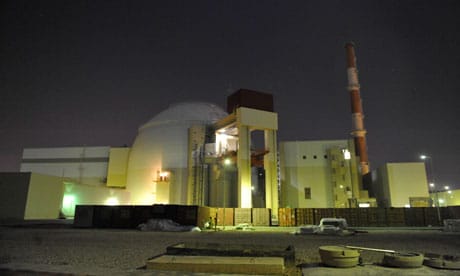
Moscow is helping Tehran despite its stubborn defiance of international demand to halt uranium enrichment for fear the Islamic Republic is secretly building a nuclear bomb.
Rosatom spokesman Sergei Novikov said that uranium fuel shipped by Russia has been loaded into the Bushehr reactor, beginning the startup process.
‘From that moment the Bushehr plant will be officially considered a nuclear-energy installation,’ he said.
The United States has called for Russia to delay the startup until Iran proves that it’s not developing nuclear weapons.
Russian officials said that the latest U.N. sanctions against Iran won’t affect the Bushehr project.
Russia signed a $1 billion contract in 1995 for building the Bushehr plant, but it has dragged its feet on completing the project for years.
Moscow has cited technical reasons for the delays, but analysts say Moscow has used the project to press Iran to ease its defiance over its nuclear program.
Novikov said that Rosatom chief Sergei Kiriyenko went to Bushehr in 
Prime Minister Vladimir Putin said in March that the Bushehr plant would begin operating this summer. Some Iranian lawmakers have accused Russia of delaying the project under the Western pressure.
Moscow has said that the Bushehr project have been closely supervised by the U.N. nuclear watchdog, the International Atomic Energy Agency.

Russia has insisted that the Bushehr project is essential for persuading Iran to cooperate with the IAEA and fulfil its obligations under international nuclear nonproliferation agreements.
The U.N. Security Council slapped a fourth set of sanctions on Iran in June over its nuclear program.
The move followed Iran’s refusal to halt uranium enrichment, a process which can be used for the production of fuel for power plants as well as material for nuclear warheads if enriched to a higher level.
Iran insists its nuclear program is purely peaceful, aimed at producing nuclear energy, but the United States and others believe Tehran’s real goal is to produce atomic weapons.
Russia has walked a fine line on Iran for years.
It is one of the six powers leading international efforts to ensure Iran does not develop an atomic bomb.
It has backed U.N. sanctions, but strongly criticized the U.S. and the European Union for following up with separate, even stronger sanctions.
by Sash Dubronitz


